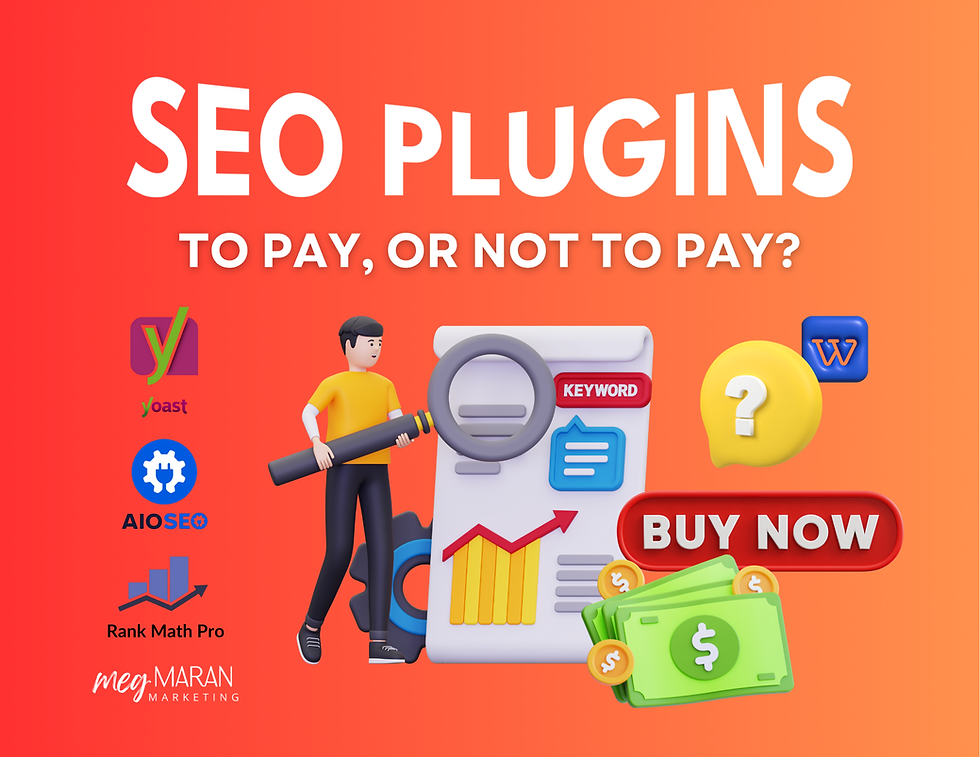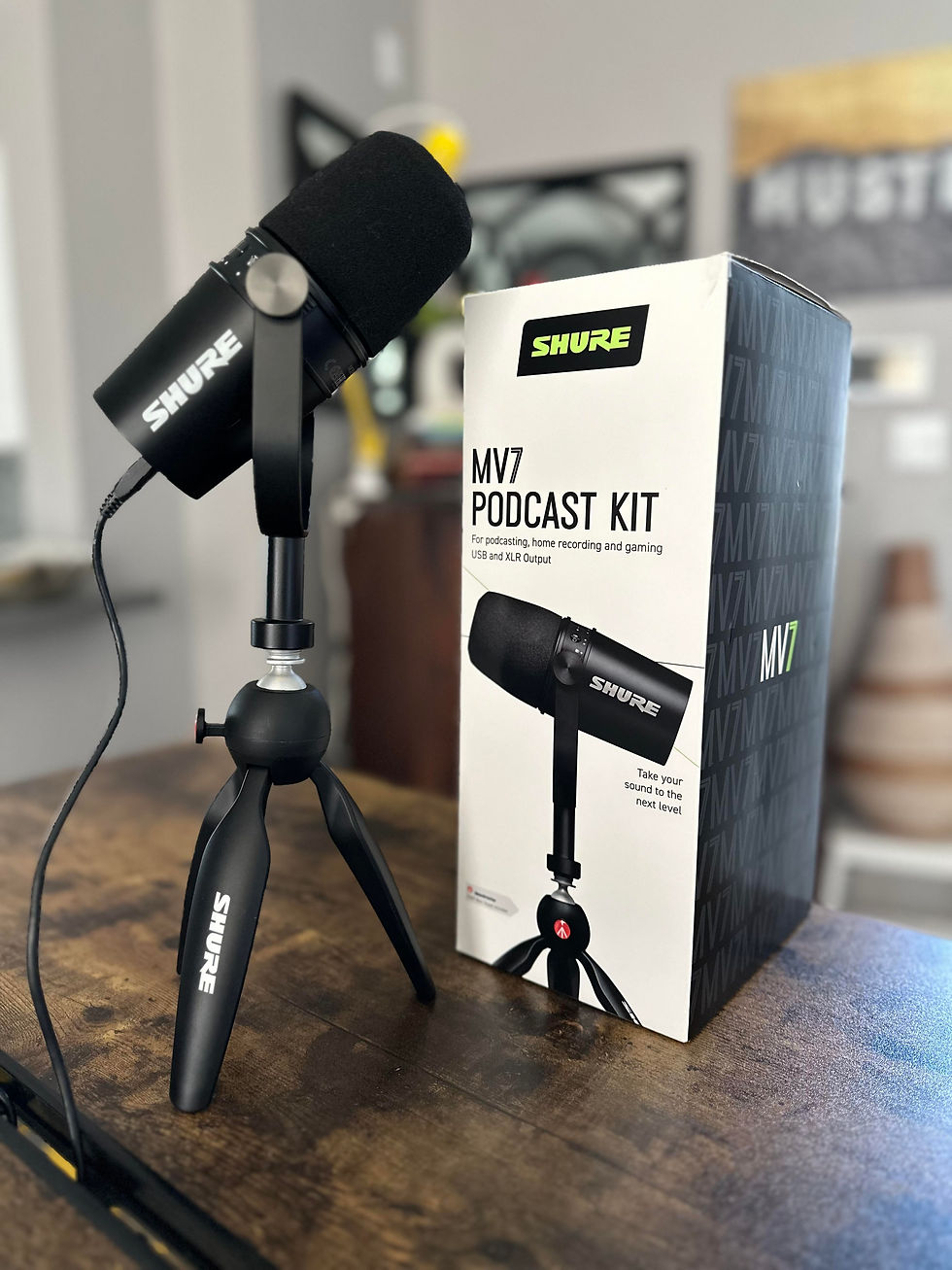Do You Need to Pay for a Website SEO Plugin?
- Meg Maran
- Nov 5, 2025
- 2 min read

If you’ve ever built or managed a website, you’ve probably seen those tempting “Upgrade to Premium” buttons on SEO plugins like Yoast, RankMath, or All-in-One SEO. The question is — do you really need to pay for them?
The short answer: it depends on how much time and in-house expertise you have to dedicate to SEO.
Free vs. Paid SEO Tools — What’s the Difference?
Free SEO plugins can take you surprisingly far. Most offer the basics: meta titles, meta descriptions, XML sitemaps, readability checks, and even keyword focus suggestions. For small websites or blogs where you’re managing everything yourself, these features can help you stay organized and optimize your content without spending a dime.

However, free tools only scratch the surface of what professional SEO demands. Paid versions often unlock features like:
Internal link suggestions
Redirect management
Schema markup and advanced structured data
Multiple keyword tracking
Content insights and integrations with tools like Google Trends or Semrush
And, if you ask me, the top benefit of paying for or upgrading your SEO plugin is
Automated, “smart” SEO, meaning the plugin scans your content and uses AI with field merging to optimize your website’s keywords, meta titles, image alt text, etc.
These features can make a major difference — especially when your website starts growing, or when you’re trying to compete in a more saturated niche.
Why Paying for an SEO Plugin Might Be Worth It
Unless you have someone in-house who can manage SEO from top to bottom — meaning keyword research, metadata, backlinks, site speed, schema, and analytics — you’ll likely benefit from investing in a paid SEO tool.
Think of Yoast Premium or RankMath Pro not as “luxuries,” but as digital assistants. They keep you from missing important optimizations that could cost you ranking opportunities. For instance, a missed redirect can mean a broken link that Google penalizes. An overlooked schema markup could mean your content doesn’t appear in rich results — a major visibility loss.
Paying for an SEO plugin ensures those gaps are filled automatically or at least flagged early — saving you time, frustration, and lost organic traffic.

The Bottom Line
If your business has a dedicated SEO specialist who can manually optimize every post, track performance, and handle technical SEO — you can probably make do with free tools. But for everyone else, paying for a robust plugin like Yoast Premium is an affordable and practical investment.
After all, SEO is one of the few digital marketing areas where a small monthly fee can directly translate into long-term visibility, leads, and sales.
Get in touch with Meg Maran Marketing for personal and professional help with all your digital marketing needs.






Comments